Introduction
Winter Cherry, Poison Gooseberry, Indian Ginseng. There are so many names that will help you identify more with Ashwagandha (which is found in Chyawanprash). In Sanskrit, Ashwagandha means “odor of the horse”. Whatever the name(s), Ashwagandha is nature’s gift to mankind. You will find out how, as we go along.
What is Ashwagandha (Indian Ginseng)?
Did you know Ashwagandha is also mentioned as “Queen of Ayurveda”? It has been used for more than 3,000 years. And that it is a natural aphrodisiac for men? For science lovers, Ashwagandha comes from Solanaceae family, and its scientific name is Withania somnifera.
The Ashwagandha plant has Indian origins, and grows best in dry region. Can survive extreme of temperatures – both high and low. The medicinal properties of the plant have been a subject of interest for many years on the R&D side. However, scientific research done on the plant shows it has anti-inflammatory, anti-stress, anti-oxidizing, sleep-inducing and drug withdrawal properties. As a tonic, it boosts energy, and improves overall health and longevity. So, all in all, Ashwagandha enjoys “star” rating in Indian Ayurveda, don’t you think?

Source: juicing-for-health.com
Benefits and Uses of Ashwagandha for Skin
Let me walk you through the “healing” world of Ashwagandha. You will agree, it is a priceless treasure of health and well-being.
1. Glowing Skin
Ashwagandha has antioxidant properties that boost blood circulation and immune system. This obviously reflects in glowing skin.
2. Anti Aging
Ashwagandha is rich in antioxidants. This helps it fight against free radicals. In the process, it reduces age spots, wrinkles, blemishes (which are signs of ageing).
3. Healing Wounds
The liquid mixture of Ashwagandha can be used in ointment-form to treat cuts on skin, bruises and inflamed skin.
4. Treats Rough And Dry Skin
Did you know Ashwagandha is often prescribed for dry and rough skin, thanks to its moisturizing powers?
5. Fights Inflammation Of Skin
When it comes to treating skin disorders such as acne and inflammation, Ashwagandha is the trusted Ayurvedic healer through its roots and leaves.
6. Reduces Cortisol Levels
High cortisol levels in the body can be problematic to the skin. Ashwagandha brings down the cortisol levels on one hand, and on the other, increases DHEA, a hormone which is precursor to estrogen and testosterone.
7. Stimulates Collagen Production
Ashwagandha has the power to increase estrogen levels in the body. Estrogen and DHEA keep the skin youthful by stimulating collagen production, and upping the natural skin oils.
8. Skin Hydration
Ashwagandha pushes the production of essential elements for healthy skin e.g., hyaluronan for skin hydration, elastin for supple skin and collagen for enhancing the skin strength.
9. Used As A Skin Toner
Just use this Ayurvedic ingredient – Ashwagandha as a skin “toner” along with lemon and dried ginger for best results.
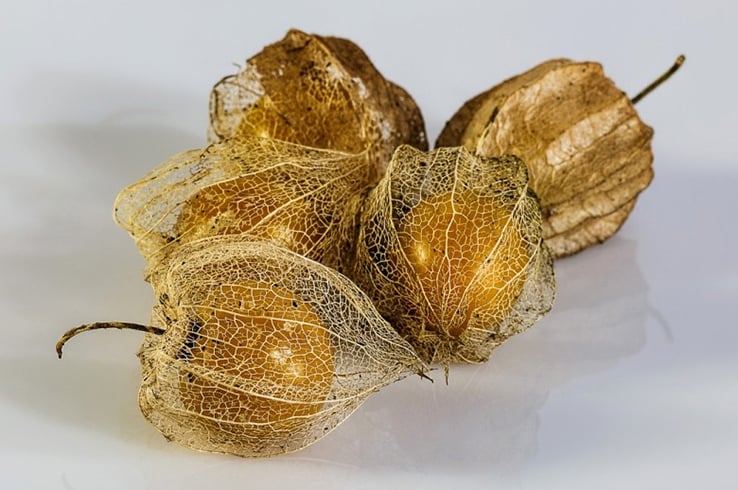
Source: bowlofherbs.com
Over to Ashwagandha’s magical powers in hair care.
Benefits and Uses of Ashwagandha for Hair
10. Promotes Hair Health
Improving the scalp circulation and strengthening the hair are some of the best benefits of Ashwagandha.
11. Stimulates Hair Follicles
Ashwagandha is known to activate hair follicles. This contributes to the overall health of the hair.
15. Prevents Breakage
Ashwagandha is loaded with antioxidants, iron and amino acids. The combined effect of all these ingredients reduces and minimizes hair breakage.
16. Treats Dandruff And Other Scalp Conditions
Thank the anti-inflammatory properties of Ashwagandha. For they effectively treat scalp conditions like pesky dandruff, scalp psoriasis, and eczema.
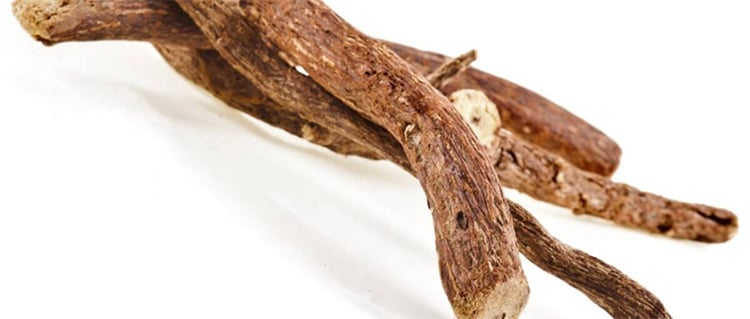
Source: MavCure.Com
Now that we have seen Ashwagandha’s contribution on the hair front, what about health part? Here we go:
Benefits and Uses of Ashwagandha for Health
17. Anti-Cancer Properties
Ashwagandha plant is armed with cancer-killing properties. It also reduces the side effects of “chemotherapy” without disturbing the tumor cell-killing activity.
18. Anti-Inflammatory Properties
Ashwagandha decreases inflammation and pain. Research verifies that Ashwagandha has anti-inflammatory properties coming from the presence of alkaloids, saponins, and steroidal lactones in it.
19. Antibacterial Properties
Go back to the collection of Ayurvedic medical tests, and you will find Ashwagandha being pronounced “effective” in controlling bacterial infections in humans. When taken orally, it is also seen effective in keeping a check on urino-genital, gastro-intestinal, and respiratory tract infections.
20. Cardio-Protective Properties (Lower Cholesterol and Triglycerides)
Ashwagandha is good at controlling cholesterol levels (bringing it down) and strengthening muscles of the heart. That it does owing to its anti-inflammatory, anti-oxidant, and anti-stressor properties.
21. Anti-Depressant Properties
Ashwagandha has been used in India traditionally and majorly to improve both physical and mental health – particularly on depression and anxiety.
22. Fights Diabetes
The connection between Ashwagandha and diabetes sounds strange, right? Fact is that use of Ashwagandha in treating diabetes has shown positive results.
23. Stimulates the Thyroid Gland
Know what hypothyroidism is? When thyroid gland can’t produce enough thyroid hormone to keep the body functioning normally. Ashwagandha’s root extract when given on a daily basis, does a reverse effect by increasing the secretion of thyroid hormones.
24. Relieves Stress and Anxiety
Ashwagandha is known to have anti-stress properties. It induces soothing and calming effect on a person.
25. Antioxidant Properties
Good source of antioxidants Ashwagandha is, which helps it scavenge and neutralize free radicals produced during metabolism.
26. Boosts Immunity System
Upon consumption of Ashwagandha, you can expect better immunity and increased red blood cell, white blood cell, and platelets count.
27. Increased Blood Production
The process of producing new blood is called Haematopoiesis. And Ashwagandha has hemo-poetic properties, which helps it prevent anemia.
28. Aphrodisiac Properties
For many centuries, Ashwagandha has been used as a form of medication to help improve vitality, fertility and semen quality.
29. Reduces Blood Sugar Levels
Ashwagandha is a time-tested remedy for treating diabetes. Blood sugar levels reduced significantly during fasting and after fasting on taking Ashwagandha for a month.
[sc:mediad]
30. Increases Muscle Mass and Strength
The Indian Ginseng or Ashwagandha has been found to improve muscular strength of the lower limbs and overall weakness too.
31. Improves Brain Function, Including Memory
Ashwagandha has exceptional effects on the human nervous system. It even serves as alternative treatment for mental degenerative diseases like Alzheimer’s and Parkinson’s disease.
32. Improves energy, increase stamina and endurance
Ashwagandha has got revitalizing properties which help increase sexual stamina and staying power.
33. Treats Insomnia
Lack of sleep ends up affecting the normal body functioning. Ashwagandha calms and balances the mind, thereby stimulating sleep.
34. Reduces Joint pains and Treats Arthritis
Once again, research confirms Ashwagandha as a powerful herb, and a natural remedy for joint pain and severe arthritis.
35. Boosts Athletic Performance:
According to investigations, Ashwagandha has the ability to push up athletic performance – since it empowers muscular strength.
36. Protection Against Gastric Ulcers
The antimicrobial and antibacterial activities of Ashwagandha guard your body against dangerous bacteria including Salmonella (said to cause food poisoning).
37. Helps Increase Height
Increase in height is a prime concern in the minds of many today. Ashwagandha fills this gap. Just mix 2 tbsp Ashwagandha powder in a glass of hot milk (add sugar or jaggery, whichever you prefer) and watch your height grow.
38. Central nervous System Support
Well, research studies confirm Ashwagandha’s stress-relieving ability, and the fact that it protects brain cells against the negative effects of our modern lifestyles.
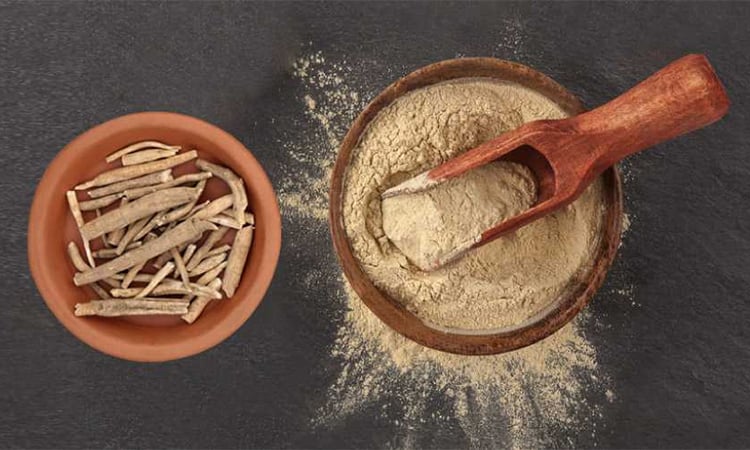
Source: healthkart.com
Ashwagandha Nutritional Value
Ashwagandha is actually a powerhouse of nutrition. You get the following in it:
- Iron
- Antioxidants
- Tannins
- Potassium
- Nitrate
- Fatty acids
- Glucose
- Steroidal alkaloids – sominine, somniferine, withanolides and anferine
- Flavonoids
- Lactone and more…
Uses Of Ashwagandha
Ashwagandha is used mainly in the form of powder. It’s uses are immense when converted into different recipes based on the benefit you are looking into.
So ready to know the uses ?
- Don’t throw away the roots and berries of Ashwagandha. They play a major role in the production of tonics and capsules for health uses.
- Ashwagandha Tea. A tea on par with your health teas. Boil Ashwagandha roots with tea for about 15 minutes and your tea is ready to drink.
- A water based tincture of Ashwagandha is widely used as medicine.
- Ashwagandha powder is used in Ayurveda for reasons more than one, healing day by day.
Ashwagandha tablets and capsules in the world of medicine are widely spread and known to be effective.
Well, the medicinal properties of Ashwagandha include the following:
- Strength, Vitality and Power
- Sleep, Relaxation, Anti-stress
- Aphrodisiac
- Digestion
- Anti-ulcer, anti-cancer, anti-disease
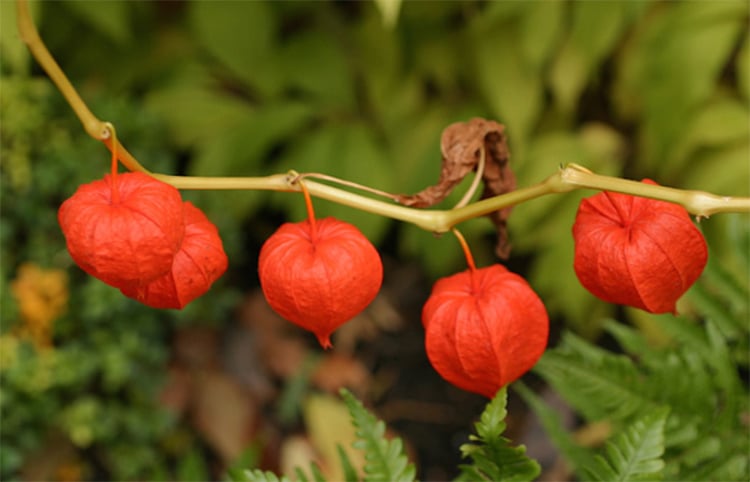
Source: itoozhiayurveda.in
Side Effects
For Pregnant Ladies: Preggie ladies are advised to stay off taking Ashwagandha as it has abortifacient properties. Got the point? It means Ashwagandha is not advisable for the expecting mother and unborn child.
Risk of Medical Interactions: Doctors advise caution while using Ashwagandha, when one is on a medical prescription. There is fear of Ashwagandha clashing with regular medications, especially those who are suffering from diabetes, hypertension, depression, anxiety, or insomnia.
Miscellaneous: Avoid taking Ashwagandha in large amounts. Or else, this can lead to side effects such as nausea, diarrhea and upset stomach.
Dosage
Ashwagandha is readily available as OTC. It comes in the following versions:
- Powdered form
- Dried form
- Fresh root.
For general well-being: 1-2 tsp or 5-6 gram of the powder is recommended.
For treatment of specific ailment or disease: It is best to consult a medical professional or an Ayurvedic doctor, so that there is no room for clash of Ashwagandha with your overall health.
Ashwagandha as tea: You can take Indian Ginseng by boiling its powder form in water for about 10 minutes. Make sure, you use 1 tsp of powder only (not more) in 1 cup of water.
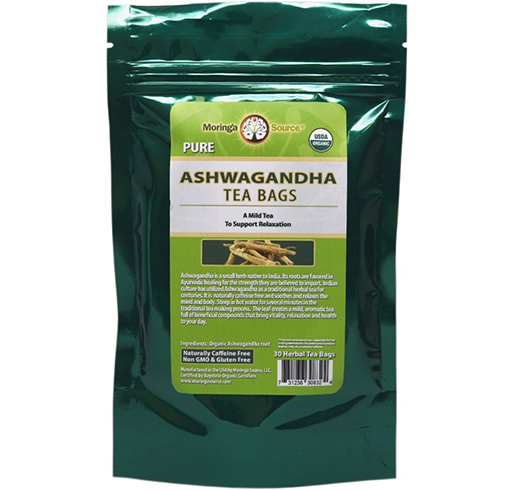
Source: miracletrees.org
Ashwagandha as root powder: You can take Ashwagandha in root powder form, along with a glass of hot milk, before going off to sleep.
Prevention, Tips and After Care
Whether it is diet or medicines, all need to be taken in the right quantity, not in excess. Ashwagandha is good as a short-term remedy (when taken orally). Large doses can end up causing nausea, vomiting, diarrhea, upset tummy etc.
It’s always better to take Ashwagandha in small doses. See your body reaction. And then decide, whether to increase its intake or discontinue it. Evening/Night time is the best time to take it. When taken in strong doses, it can act as a sedative.
I hope you are now better-informed of Ashwagandha plant. Do share it in your friends circle and network. Opinions and feedback most welcome!
Recommended Articles
Fuller’s Earth Benefits And Uses For Skin, Hair, And Body
Benefits Of Rose Water For Skin, Hair, Eyes And Health
Benefits Of Rice Water For Hair And Skin
Benefits Of Eating Dates For Skin, Hair And Health
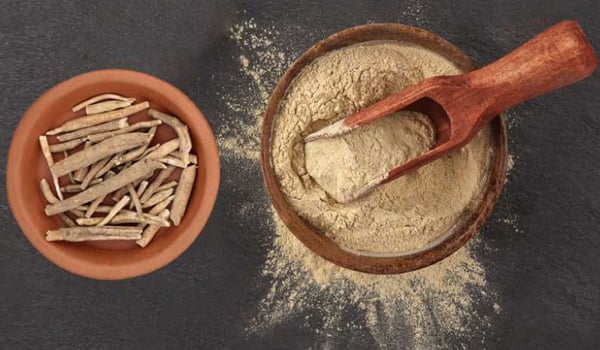
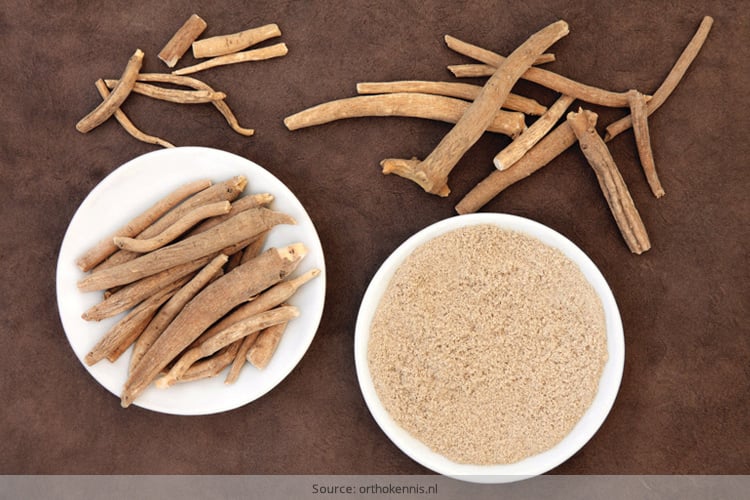
5 comments
I have heard that ashwagandha is helpful for mood swings? Is it true?
Ashwagandha is a mood booster herb, and according to studies it could help people fight mood imbalance.
I am going to have a surgery. Should I continue taking ashwagandha?
Discontinue the ashwagandha atleast 2 weeks before a surgery.
How much should you put in a warm cup of milk for going to sleep?